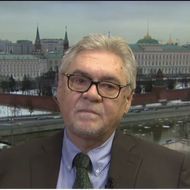Дисциплины курса
Политика во все времена делается людьми, действия которых определяются их воспитанием и образованием, внушенной им системой ценностей, религиозными убеждениями. Для того, чтобы понять логику развития внешнеполитических событий, надо разбираться не только в политической и экономической истории, но и учитывать антропологический аспект: в каком социокультурном и религиозном контексте складывалось мировоззрение людей, определявших эту политику. На занятиях майнора, посвященных роли европейской цивилизации в мировой политике, мы рассмотрим ключевые философские, религиозные и художественные концепции, в рамках которых складывалось сознание великих мира сего и простых людей. Проследим, как реализовалось в политической сфере наследие Рима, Средних Веков, Ренессанса, Барокко и, конечно, эпохи Просвещения, когда наследие европейской цивилизации было ревизовано, переосмыслено и, в преображенном виде, породило ментальность человека XIX века, без понимания которого невозможно понять и влияние цивилизационных факторов на внешнюю политику в XX и XXI веке. На занятиях мы научимся историческому подходу к оценке политики и политиков ареала европейской цивилизации разных периодов времени. Будут использоваться видео- и аудиоматериалы, читаться и комменитироваться знаковые тексты.
Цель курса - формирование у студентов целостного представления о культурных рамках внешней политики ближневосточных стран. На примере стран ближневосточного региона будет показано, каким образом нормы и ценности, связанные, прежде всего с исламом, влияют на их внешнеполитический курс, и, в частности, на институциональный, инструментальный и дискурсивный дизайн их внешней политики.
The course consists of 5 major parts that respectfully cover the cultural aspects of politics in East Asian countries (China, Japan, South Korea, North Korea and Mongolia). Each country is analyzed through several different perspectives: 1) traditional beliefs and their role in the modern internal and foreign policies; 2) the nature and institutions of cultural diplomacy; 3) existing schools of thought and evolution of traditional concepts 4) the implementation of traditional concepts and their influence on decision-making, pratical initiatives; 5) changes in societal perception of traditional cultural values under globalization, medernization and digitalization 6) conflict potential that is inhabited in cultural aspects of politics (ethnic clashes, business cases, political concepts clashes, etc.). The course combines lectures with interactive formats of learning (case studies, discussion, models, group work), so the students could not only get new knowlegde on the topic but also implement it into practice and develop soft skills. For each topic the professors would provide relevant articles and books as well as video-content, pictures and other materials that would help to understand the Eastern culture and its influence on a given country's political behavior.
The course will present the distinctive features of Indian foreign policy tradition and will consist of two major parts - theoretical framework and practice. The theoretical part will bring out an Indian perspective on international relations through some foundational ancient texts that are still considered influential in policymaking circles, finding mention in their speeches and publications. In addition to the experiences of its historical civilization, India’s history of colonization and the ensuing freedom struggle have also shaped its ideology, political values, and national identity. These have collectively informed and shaped the conduct of foreign policy of independent India. The practical part will reveal the linkages between these ideas and the key actors and institutions of foreign policy-making, including tools of India's "soft power" as evident in its public diplomacy efforts. The course will address the following topics: 1) the influence of ancient political thought on Indian perception of regional and global order; 2) the impact of traditional beliefs on India's political and trade relations with other countries, as well as on issues of global concern like climate change and environmental degradation; 3) the cultural diplomacy of India, how it is conceived and implemented; 4) the impact of history and culture on domestic politics, which informs contemporary foreign policy formation; 5) the implementation of lessons drawn from history in determining the role of India in global affairs.
Целевая аудитория: студенты НИУ ВШЭ всех кампусов
Общая трудоемкость: 20 кредитов (по 5 кредитов на каждую дисциплину)
Максимальное число слушателей: 300
Годы реализации: 2022—2024
Все занятия майнора будут проходить онлайн
Преподаватели
1-й год майнора, 1-й модуль.
Руководитель майнора.
1-й год майнора, 1-й модуль
1-й год майнора, 2-й модуль
1-й год майнора, 2-й модуль
Соруководитель майнора
Пузанова Ольга Вадимовна
Международная лаборатория исследований мирового порядка и нового регионализма: Старший научный сотрудник
2-й год майнора, 3-й модуль
2-й год майнора, 3-й модуль
Бондаренко Никита Александрович
Департамент международных отношений: Приглашенный преподаватель
2-й год майнора, 3-й модуль
Захаров Алексей Игоревич
Департамент международных отношений: Научный сотрудник
2-й год майнора, 4-й модуль
Капур Ниведита
Международная лаборатория исследований мирового порядка и нового регионализма: Научный сотрудник
2-й год майнора, 4-й модуль








